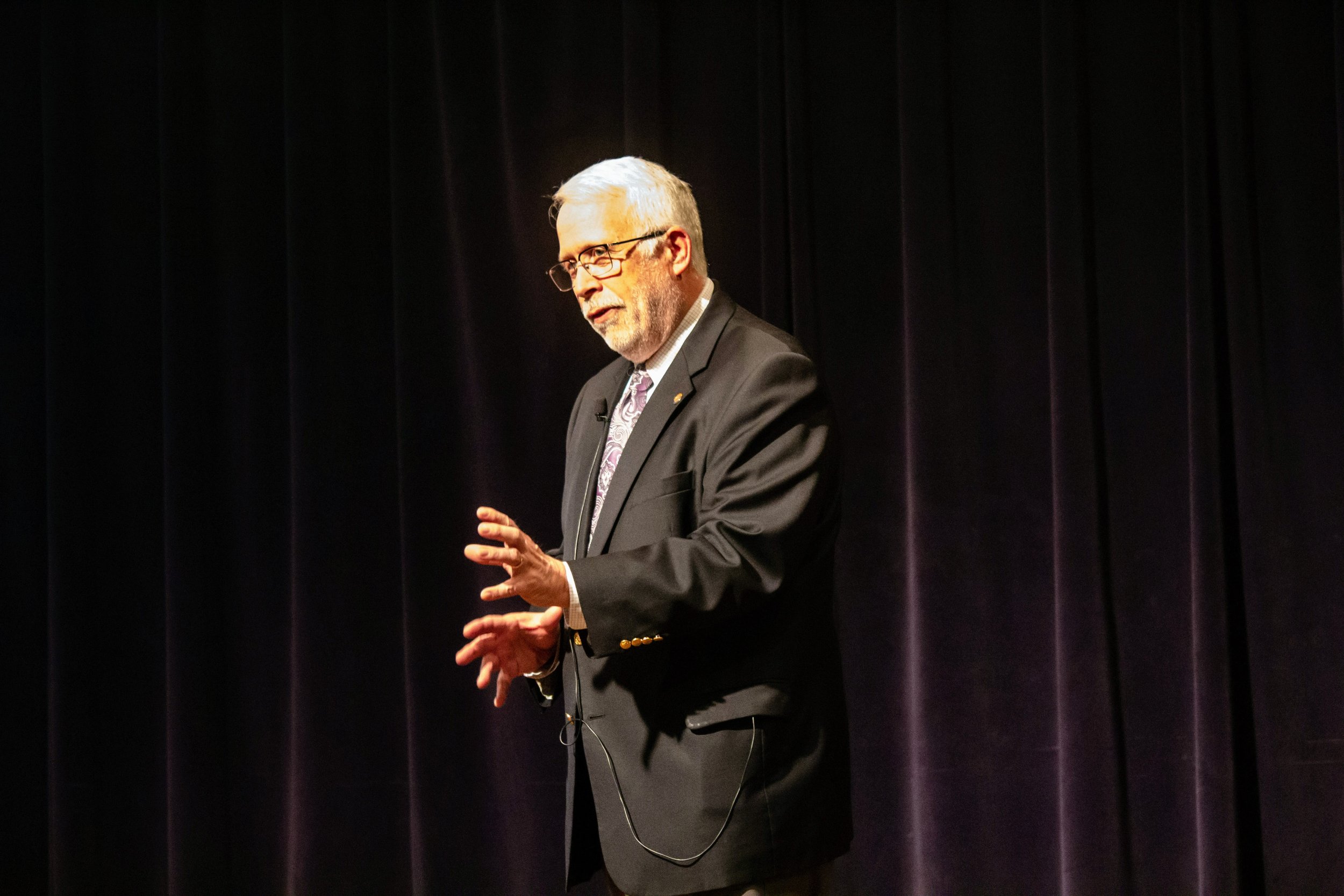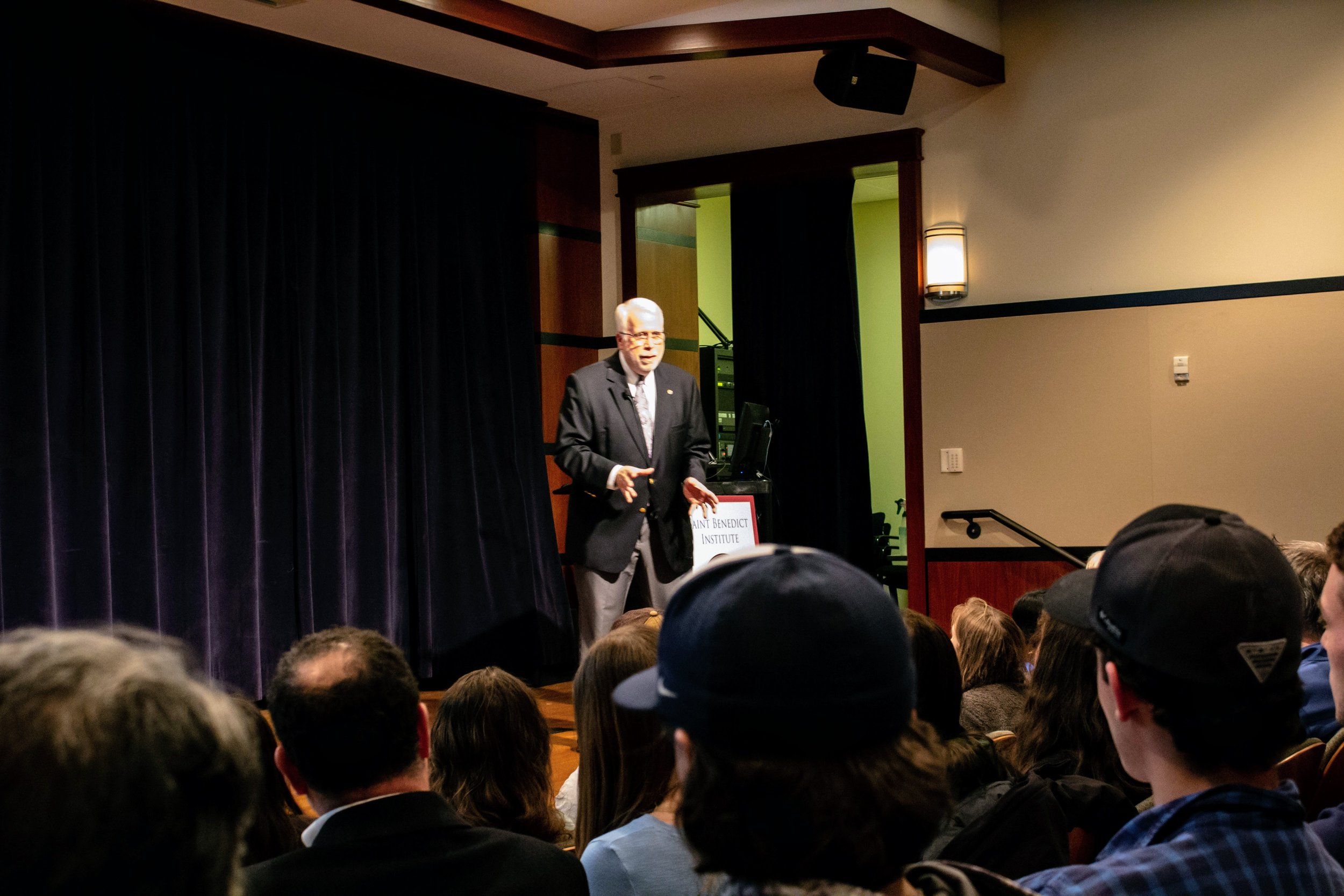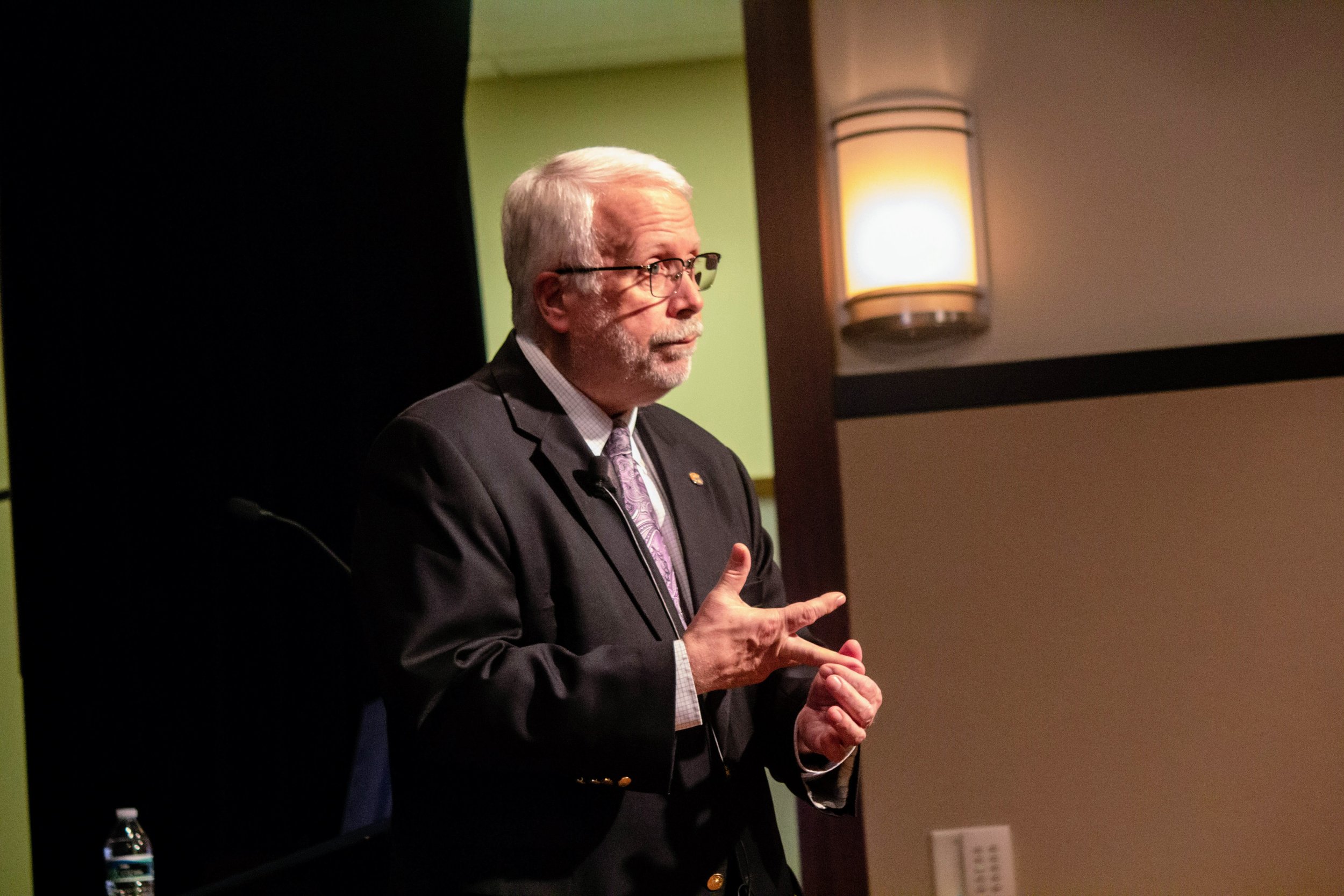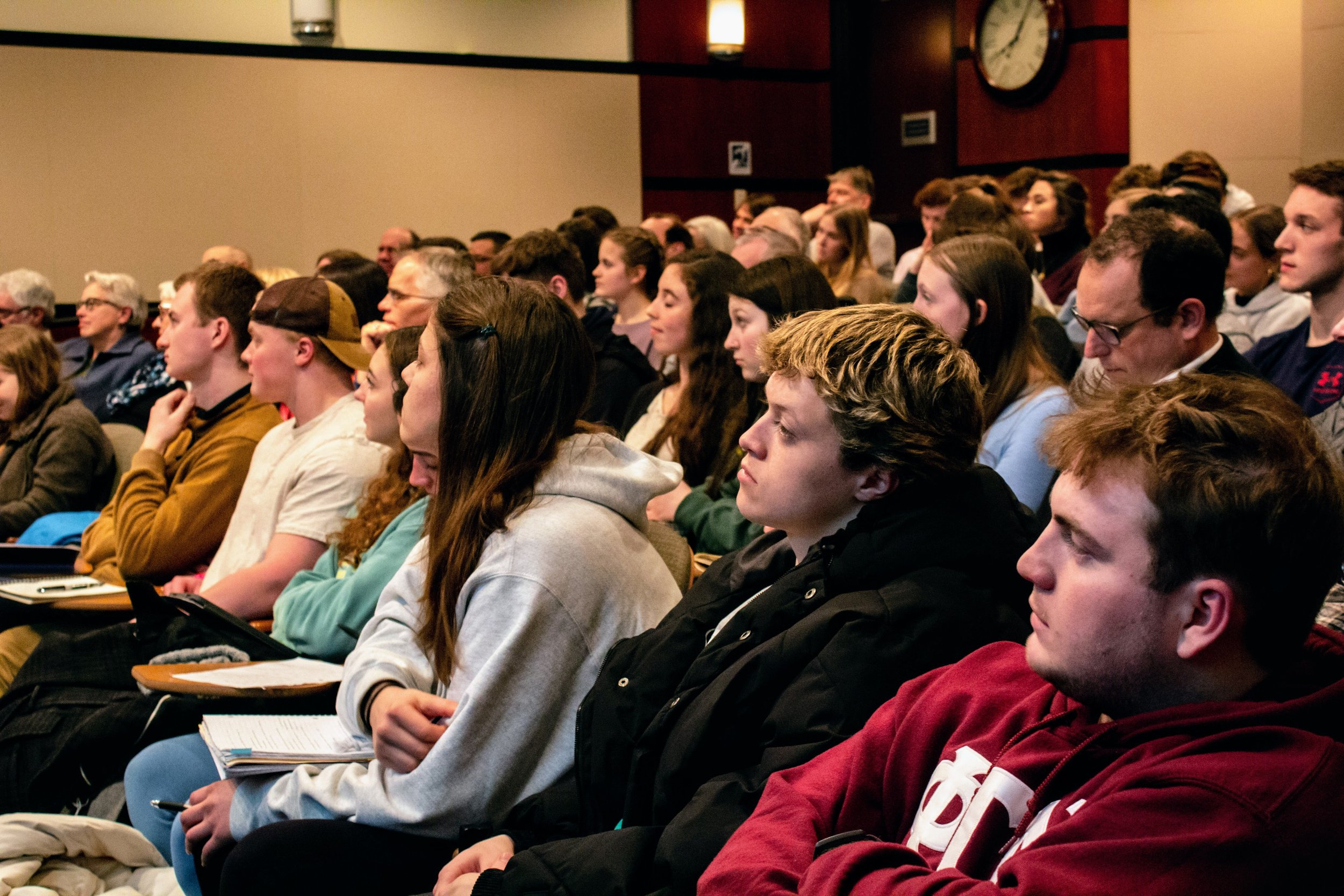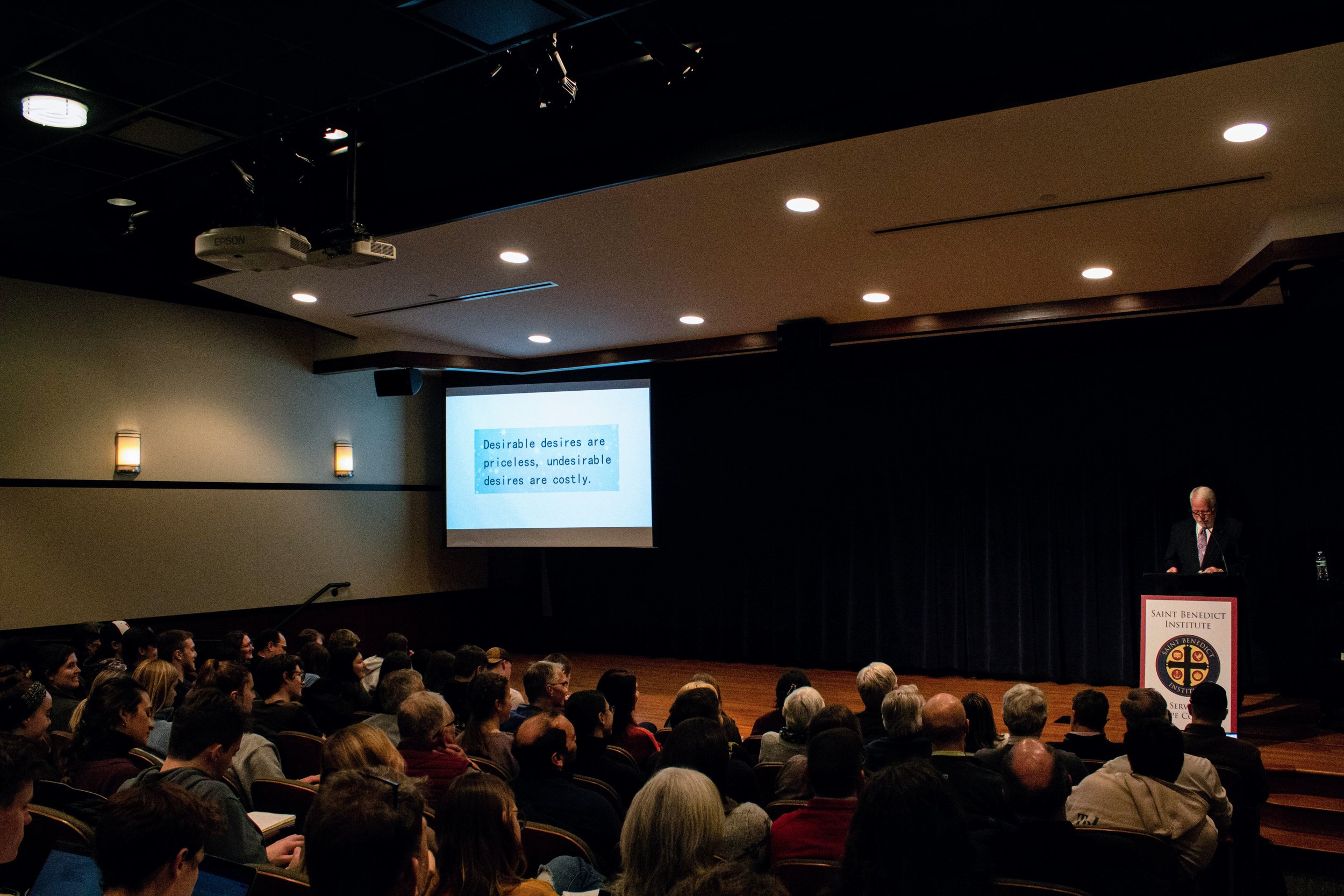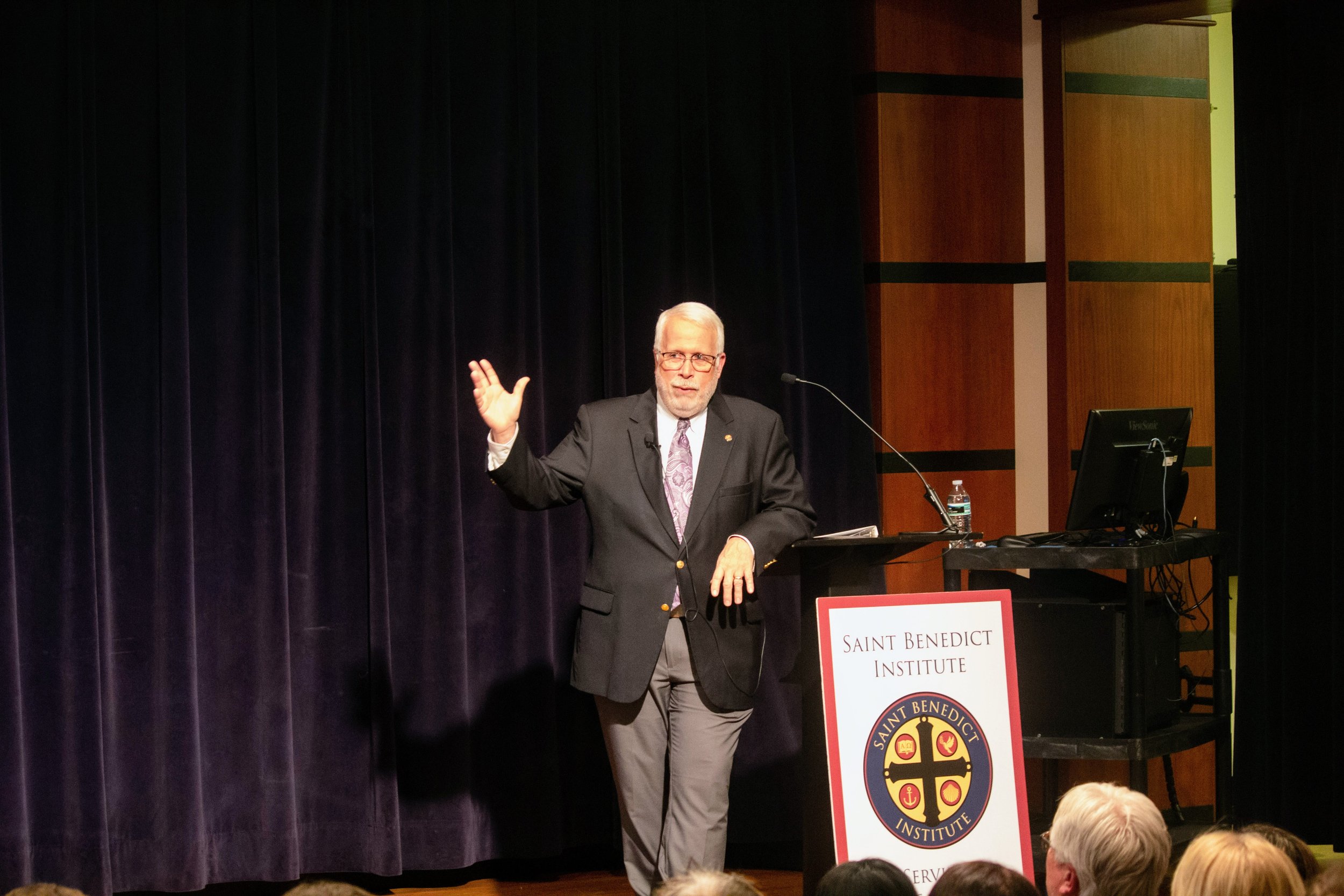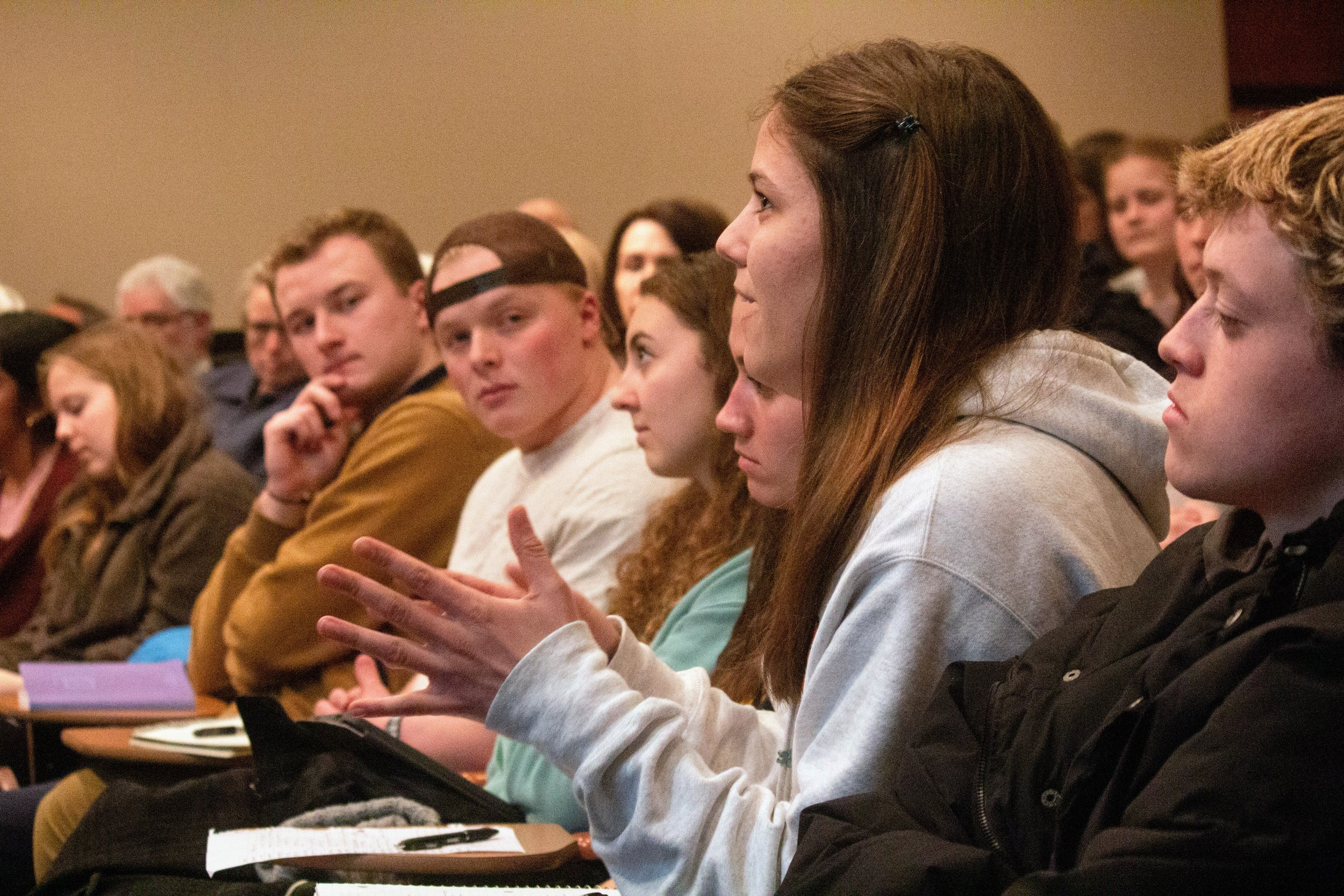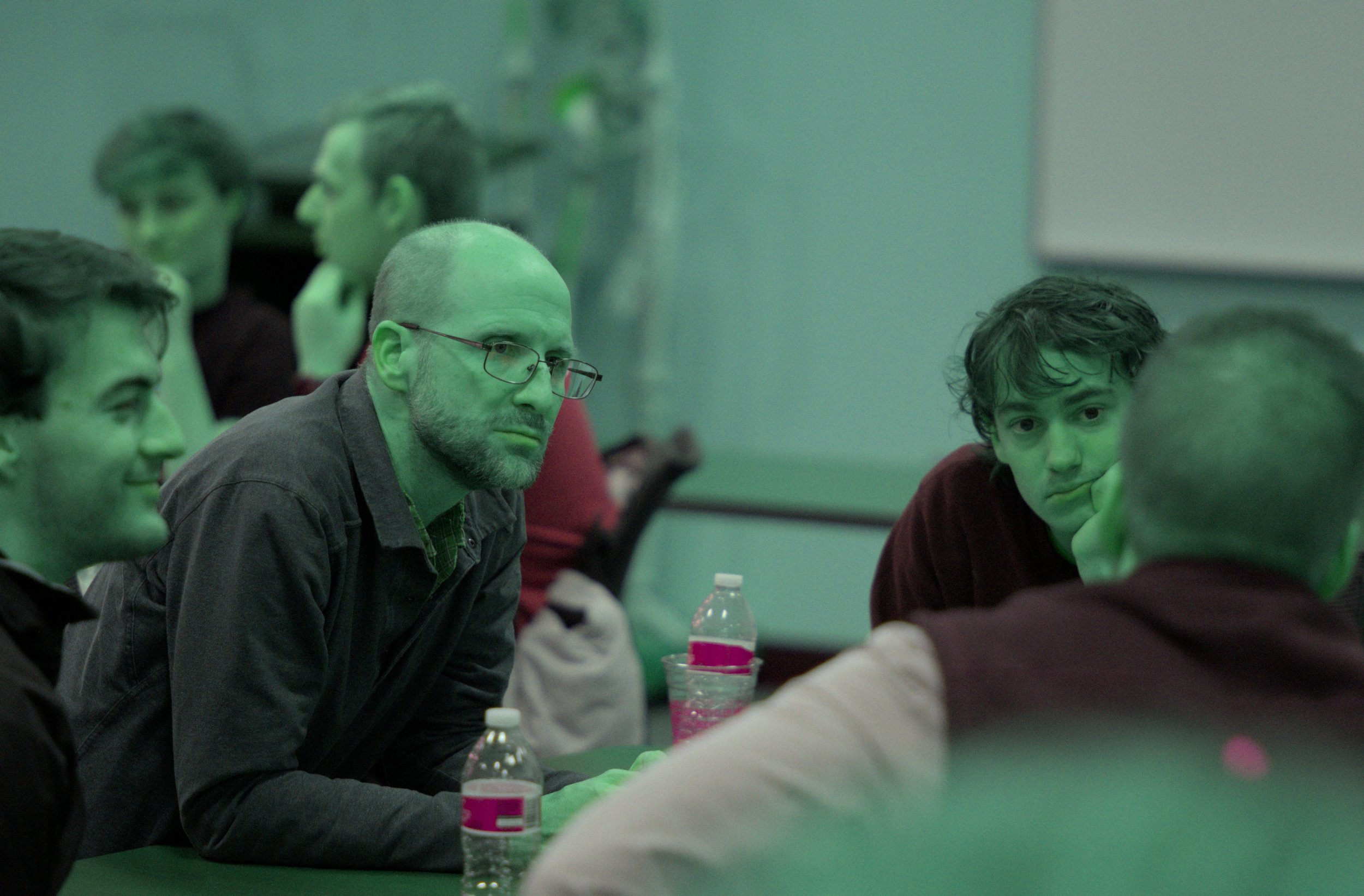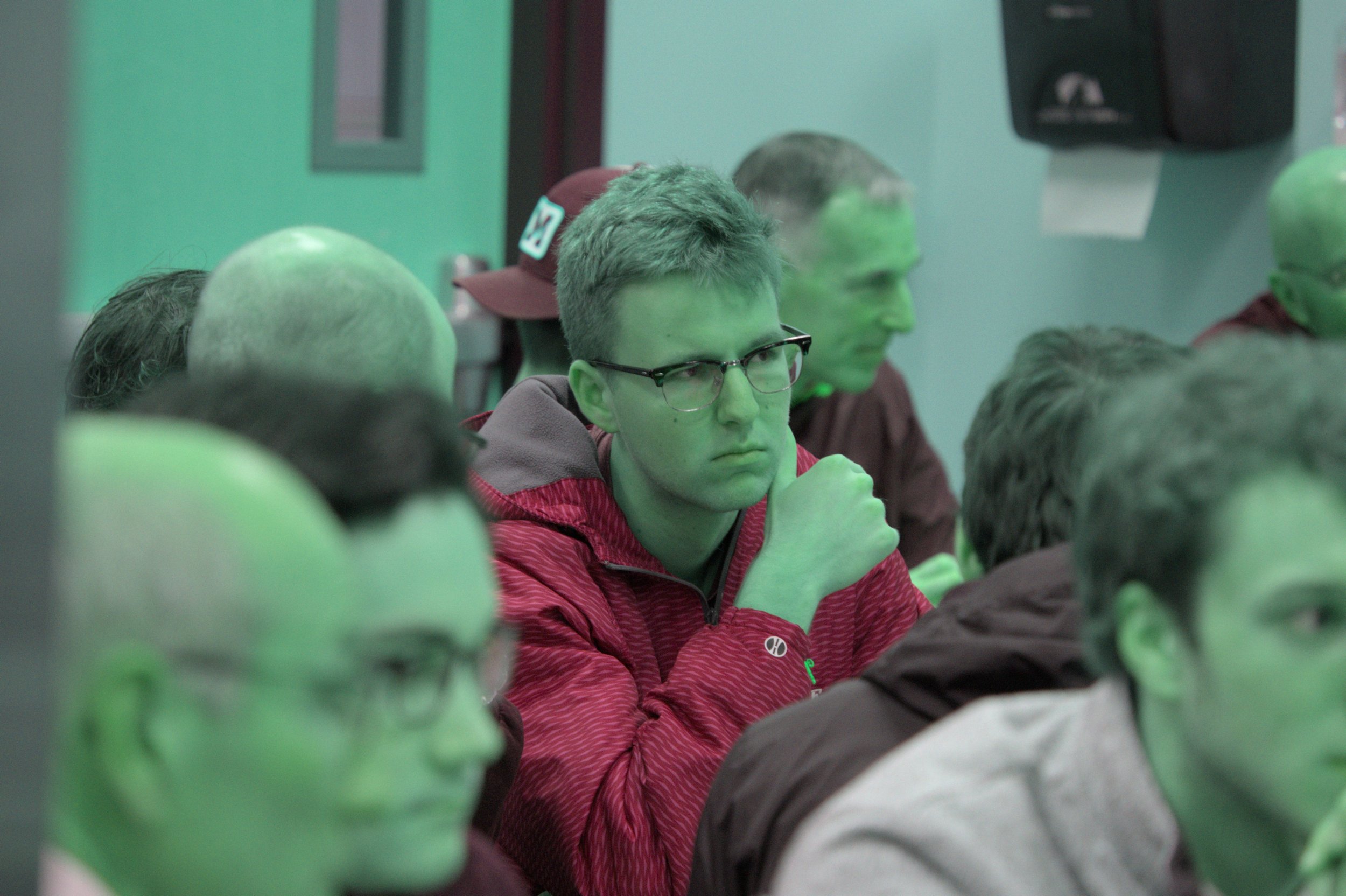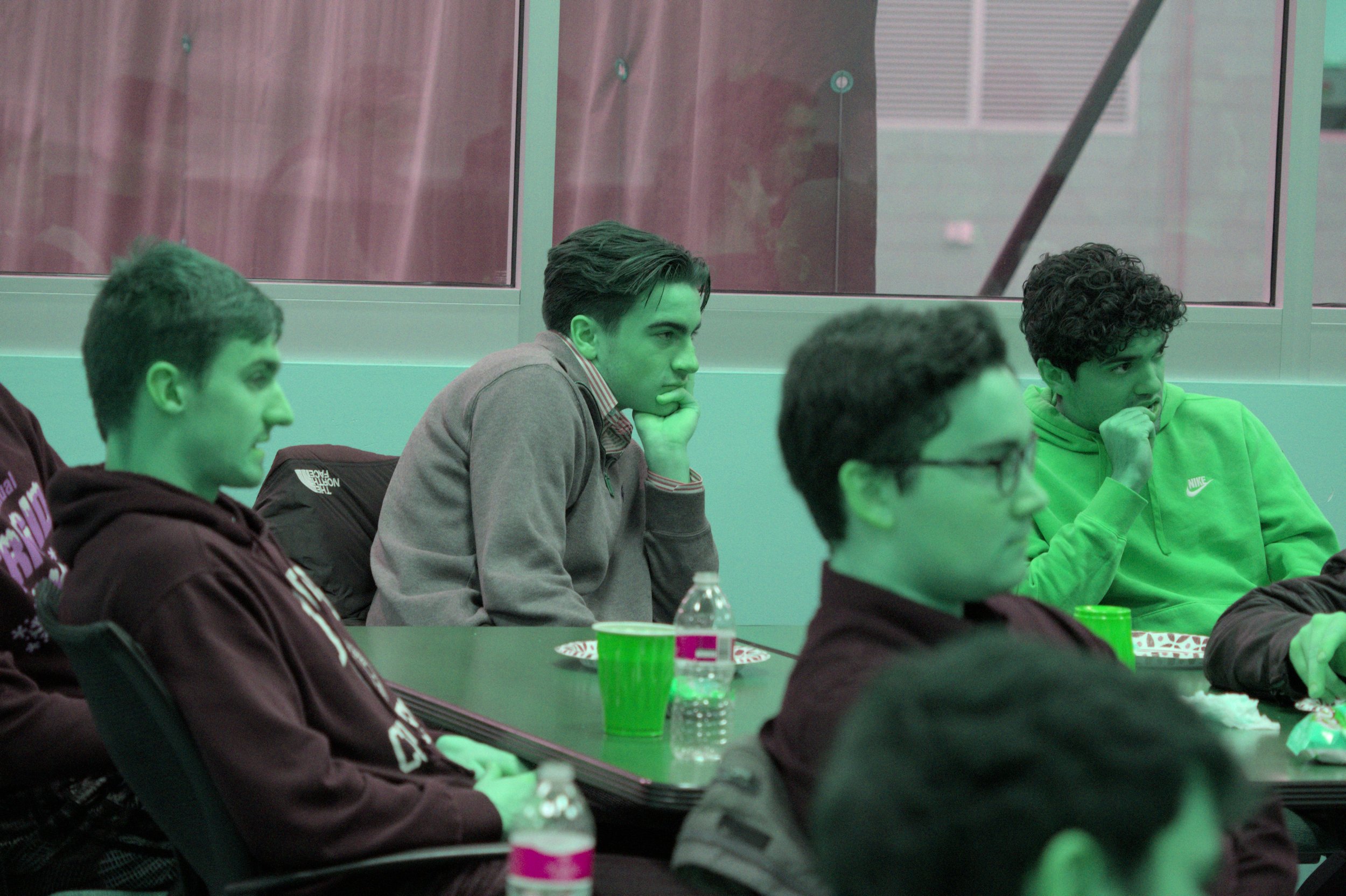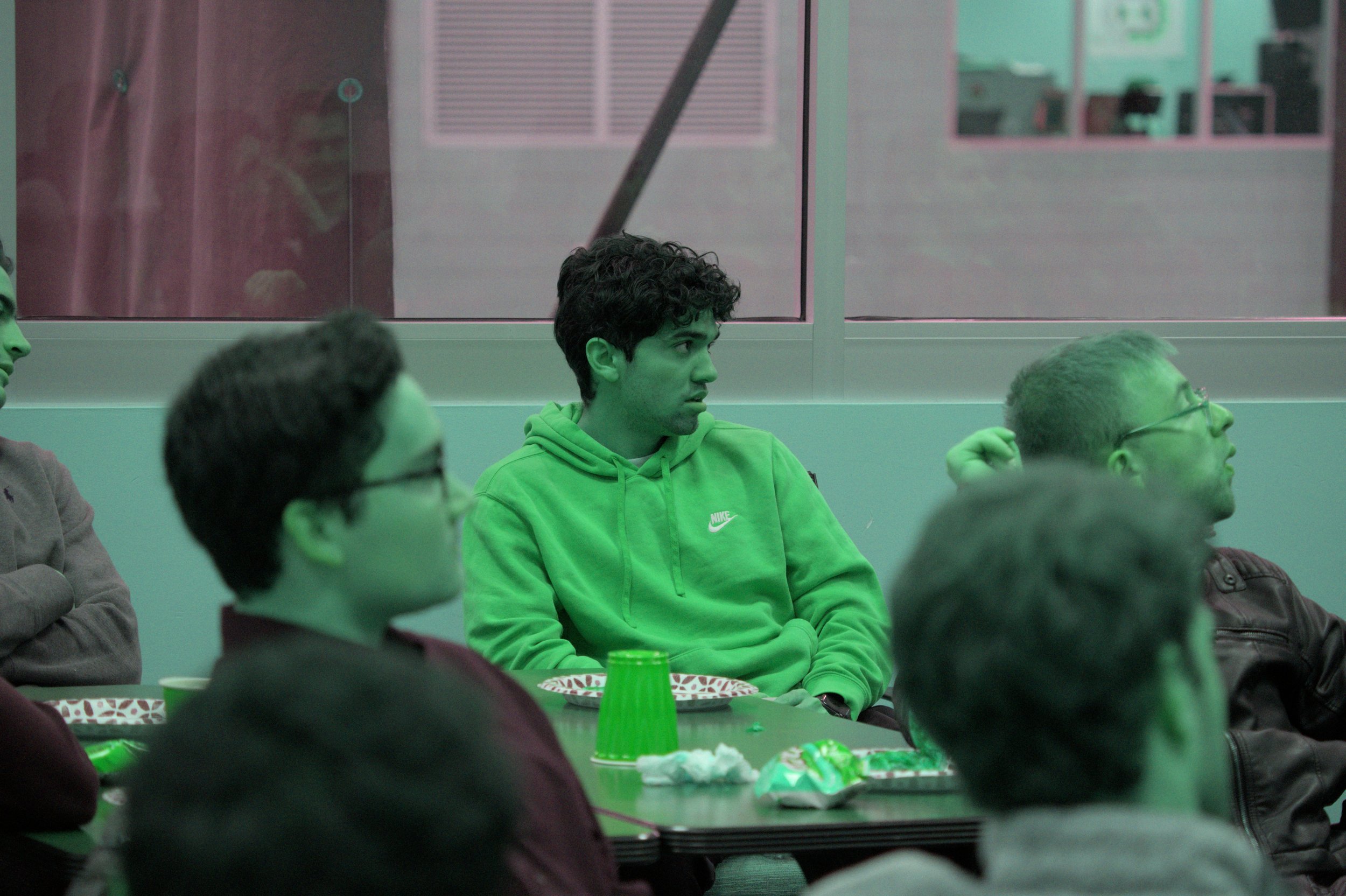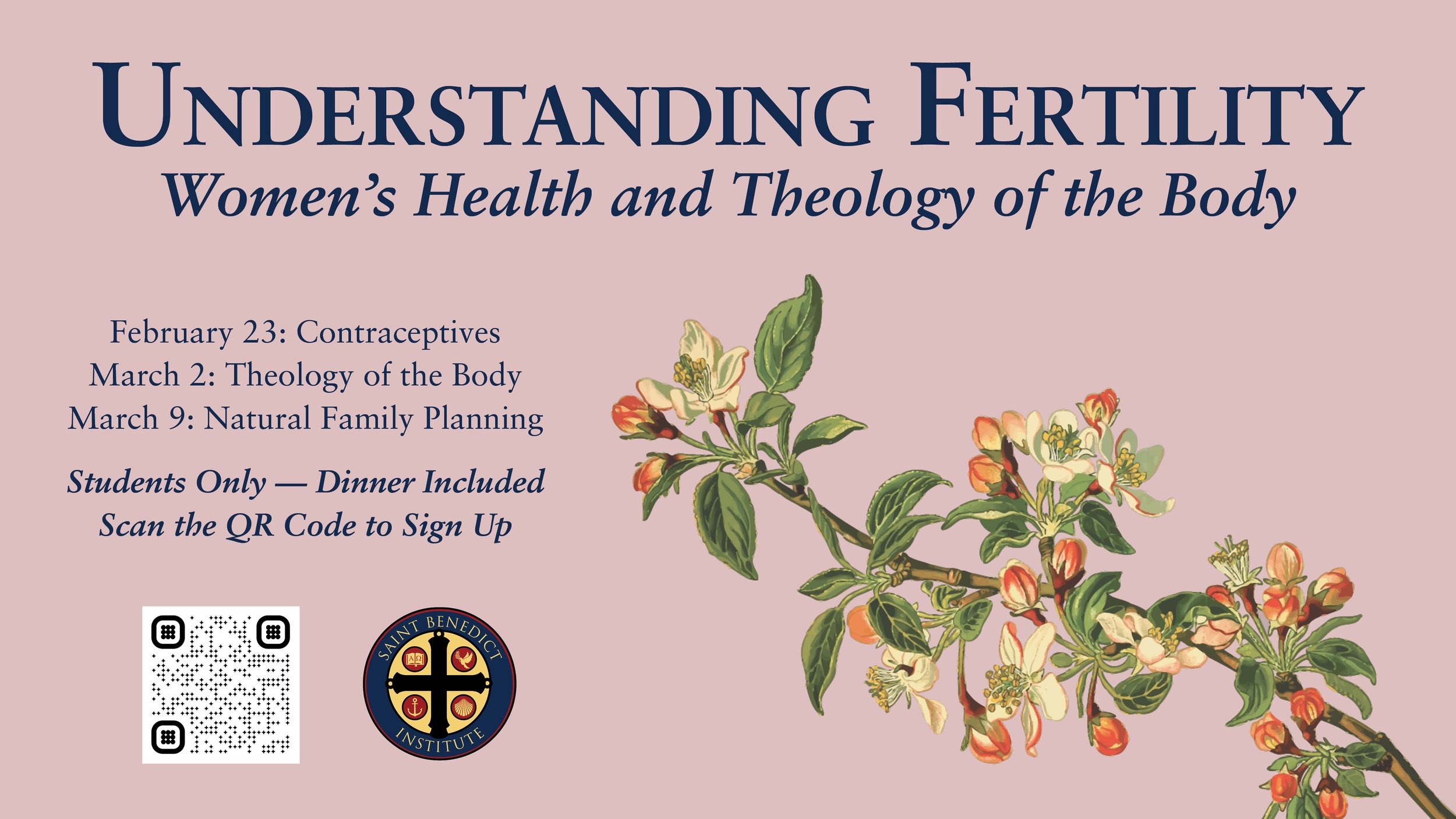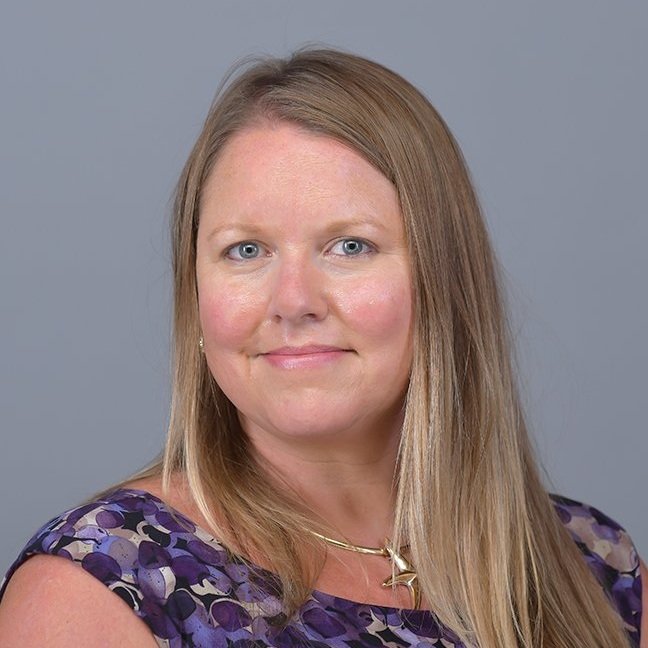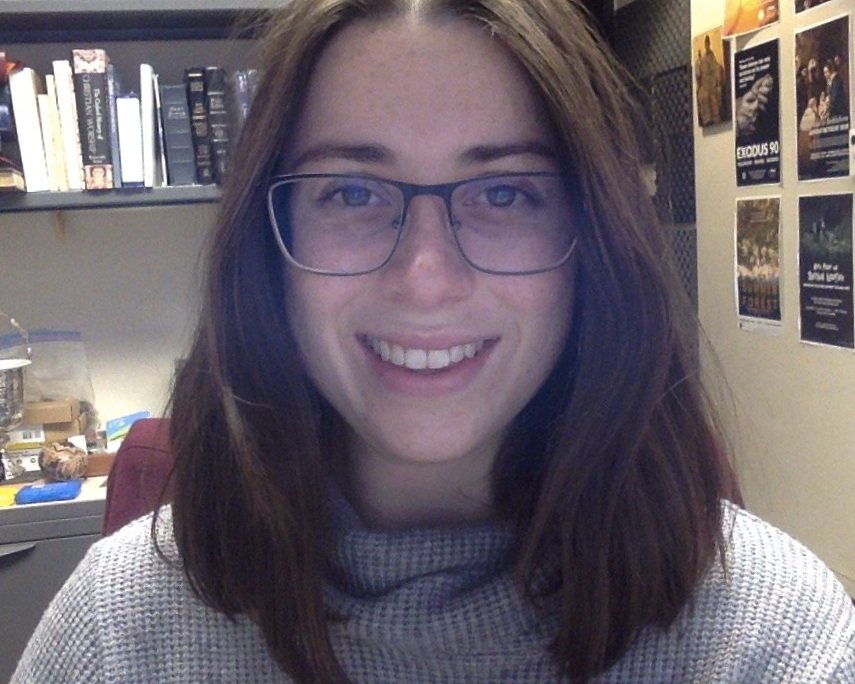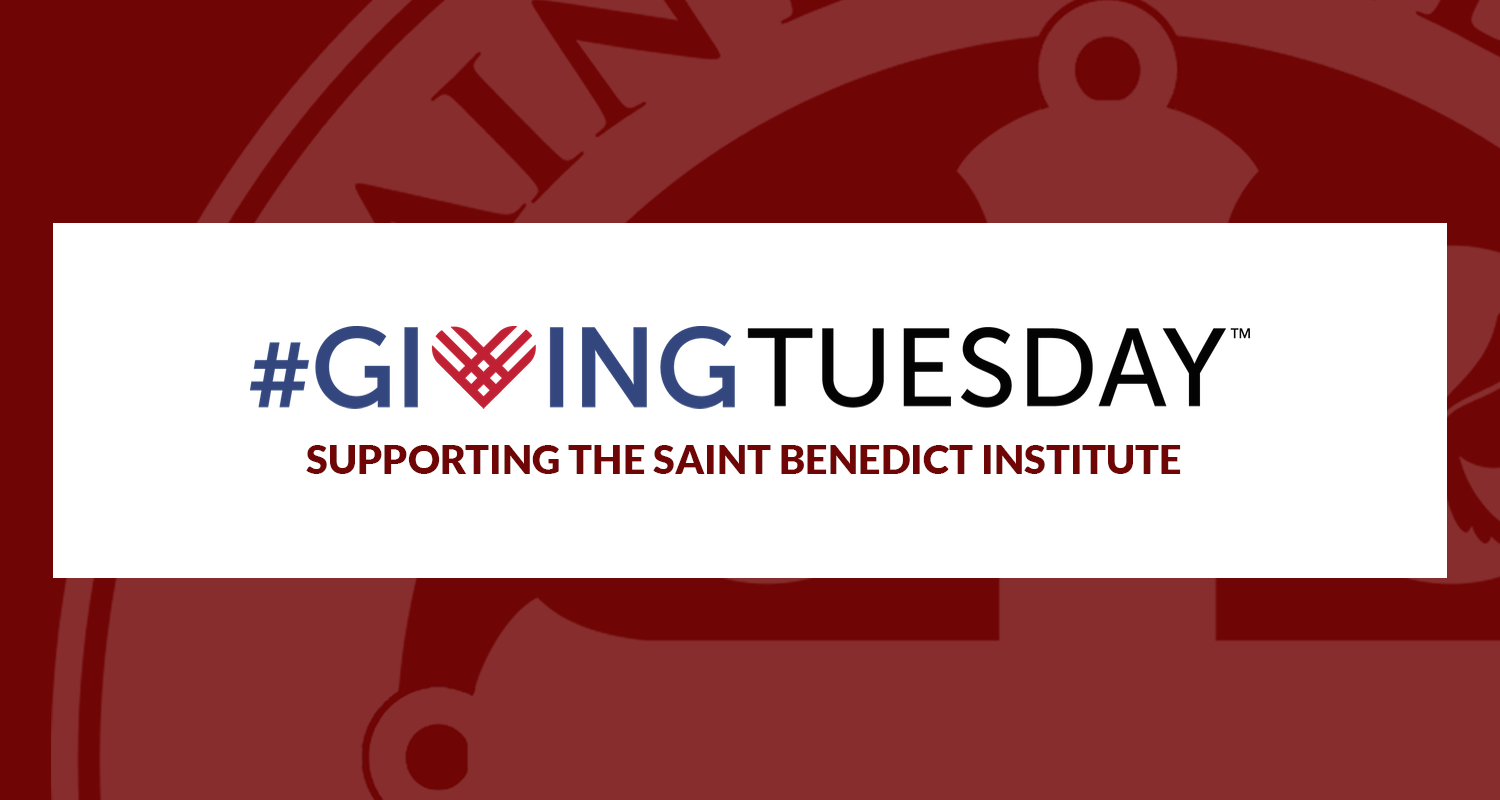The Radical Doctrine of One God
Reading the Nicene Creed in Context
Thursday, April 13, 7 p.m.
Winants Auditorium
Graves Hall at Hope College
The Nicene Creed begins with the seemingly bland statement, “I believe in one God.” This claim is so familiar to us that we have lost sight of how truly shocking, radical, and controversial this doctrine was. In the early Church, Roman authorities saw the Christian teaching about one God as a threat to the social order, and Christians had to defend their belief even, at times, to the point of death. In this talk, Jared Ortiz will explore the opening line of the Nicene Creed by situating it in its historical context. The talk draws on his forthcoming book The Nicene Creed: A Scriptural, Historical, and Theological Commentary (Baker Academic) co-authored with Daniel Keating.
This event is co-sponsored by the Hope College departments of Religion and Philosophy and the Center for Ministry Studies.
Jared Ortiz joined the faculty at Hope College in 2012. He teaches Catholic theology in the Department of Religion and is founder and executive director of the Saint Benedict Institute. Dr. Ortiz teaches courses on the Incarnation, church history, Catholic Christianity, the theology of the human person, and early Christianity.
Reflection, Video, and Photos: Richard Ray on Pilgrimage and Desire
Reflection by Cora Adam
On Thursday, February 16, 2023, students and friends of the Saint Benedict Institute filled the auditorium in the Martha Miller Center at Hope College. The lecture, “What Do You Want? Pilgrimage and Desire In a Faraway Place,” distinguished between want and desire and spoke to the power of placing Christ first in one’s heart. Dr. Richard Ray shared his stories of traversing the Camino de Santiago, an ancient pilgrimage route to the burial site of St. James. Dr. Ray is a Professor of Kinesiology and teaches a senior seminar on pilgrimage. He is the author of Walking Gratefully and The Shape of My Heart.
The first words Jesus says in the Gospel are, “What do you want?” These words are pertinent because they set our hearts to something. Fixing one’s heart on Christ and seeking to do the right thing creates a transcending sense of fulfillment. Aristotle uses the word eudaimonia or “flourishing” to describe the ultimate goal of giving more of yourself to others. We must set our hearts on something unfading and eternal to flourish. What one truly desires, loves, and longs for is more than just wanted.
Dr. Ray realized the path to flourishing on his pilgrimages. He traveled the Camino de Santiago in 2016 and again in 2019. He described his 32-day pilgrimage as a “sacred journey to a sacred place for a sacred purpose.” Throughout history and literature, pilgrimages are a source of controversy in which pilgrims wrestle with their life’s meaning. Examples include Moses’ journey to the Holy Land, the Emmaus road, Homer’s Odyssey, and the spiritual longing exhibited in the Canterbury Tales.
The Camino de Santiago, or the way of St. James, is a 500-kilometer route from France towards the Atlantic. It brings pilgrims from all over the world who wish to seek out God. The pilgrimage is physically challenging. Pilgrims walk twenty miles a day over varied terrain. Dr. Ray met fellow travelers from around the world, from different backgrounds and life circumstances. Some people on the journey were seeking clarity on their vocation, atoning from sin, fulfilling vows, or on vacation and enjoying the history and natural beauty.
The Camino de Santiago humbles its travelers and reshapes their hearts. The sacred journey forces one to set aside desires for material things, control over life, and perfect health and reminds one of humility and compassionate humanity. On the route, towns host pilgrim hostels. Walking for many days while trusting in God and receiving help from others tunes one into what they most desire. There are also many churches to visit and priests who bless pilgrims on their journey. It allows God and worshipping God to become a habit.
Contemplation, prayer, and preparation are essential to pilgrimage. Pilgrimage is an opportunity to retreat from daily life and to pray without ceasing. The dedication required for going on a pilgrimage gives time and space to reorder wants and reshape hearts. By worshiping, wanting, and desiring Christ, Dr. Ray was able to change his life for the better, orienting his life around Christ. He urged the audience to think about what we most desire. He advised that if we wish to participate in a pilgrimage, we need to plan carefully and then give ourselves to God.
Dr. Ray had such tremendous gratitude for the impact of the pilgrimage that he returned to the ancient footpaths again. The process and the journey are where the change takes place. Rejoice through challenges! The experience left him feeling “flooded with grace” and hope.
Photo credit: Adam Vander Kooy
Spring Break Immersion Trip: Saint Meinrad Archabbey
March 17-27, 2023
The life of the monks at Saint Meinrad Archabbey revolves around prayer and work for the love of God and neighbor. Located in the hills of rural southern Indiana, the monastery offers visitors a chance to experience a rhythm of life very different from our own. This immersion trip, sponsored by the Saint Benedict Institute, allows Hope students to enter into the rhythms of monastic life for a week, beginning with vigil prayers at 5:30 a.m. in the abbey church. The prayer is beautiful, the setting is tranquil, and the people are joyful. Please pray for the students who will attend this trip!
Men of Hope: Photos
On Thursday, February 9, 2023, men of Hope College gathered with seven of the coaches of Hope Athletics and the Athletic Director for a discussion on living out their faith, how they are called to treat women as men of God, and practical advice on dating and marriage.
Photo credit: Haniah Kring
Understanding Fertility: Women's Health and Theology of the Body
The women of Hope College are invited to join us for a three-week seminar on fertility and women’s health. Dinner is included. Students only.
You may attend the sessions individually or come for all three!
Night One: Dr. Kim Barrows on Contraceptives
Dr. Kim Barrows has worked as a family medicine physician for over a decade, most recently in Omaha, NE. It was there at the Pope Paul VI Institute at Creighton University that she acquired specialty training in NaPro Technology, a women’s health science that networks family planning with reproductive and gynecological health monitoring and maintenance.
According to Dr. Barrows, the benefits of NaPro Technology span a variety of women’s health issues beyond the natural management of fertility: infertility, miscarriage, premature birth, post-partum depression, endometriosis, premenstrual syndrome, recurrent ovarian cysts, and more. Dr. Barrows is the mother of five children, a classical singer and enjoys waterskiing, and teaching children’s choirs and dance teams.
Night Two: Melissa Mulder and Carly Mcshane on Theology of the Body
Melissa Mulder teaches introductory and intermediate Spanish language and grammar courses and Introductory Latin American Culture and History. In 2019 she traveled with Hope students to Puebla, Mexico, where she taught a cultural heritage May Term course. She enjoys visiting museums in the Midwest with students to see exhibitions of work by Latin American artists.
She serves as the faculty advisor of two student groups: Hope Catholics and Hope’s chapter of Sigma Delta Pi, the Spanish honor society.
Professor Mulder, who is also proficient in Portuguese, has been teaching at Hope since 2005.
Carly McShane serves as the Saint Benedict Institute campus missionary with a full-time ministry to the Hope College community. Her role is to cultivate friendships with students, build them up in Christ, and help them discover how to serve God in the world. She assists Fr. Nick in building a Catholic Campus ministry at Hope.
Carly leads women’s groups on campus and is available to meet with students one-on-one. In 2022, she began formation to become a certified spiritual director through the School of Spiritual Direction at Franciscan University in Steubenville, Ohio.
Night Three: Laura Cole on the Creighton Model of Natural Family planning
Laura Cole is a Creighton Model FertilityCare Practitioner Intern dedicated to empowering women to be active participants in their gynecological health and married couples to plan their future together. She and her husband, Joe, began their own Creighton journey in 2017 and have been experiencing the benefits of charting her cycles using the Creighton Model FertilityCare System and the healing provided by NaProTECHNOLOGY ever since. Inspired by their experience, Laura entered the 13 month allied health training program to become a FertilityCare Practitioner so others may experience the advantages themselves.
Her background includes 6 years in the pharmaceutical industry as a statistical programmer and statistician where she provided statistical leadership and data analysis for clinical trials across 14 different therapeutic areas and multiple pharmaceutical companies. In addition, she obtained an MS degree in Biostatistics from Grand Valley State University in 2016.
Snow Mass in the Pine Grove
Several of the Catholic students at Hope constructed a snow altar in the Pine Grove behind Graves Hall, complete with altar rail, ambo, and credence table. Fr. Nick celebrated Mass on the altar twice this past week.
What Do You Want? Pilgrimage and Desire in a Faraway Place
Thursday, February 16, 7 p.m.
Fried-Hemenway Auditorium
Martha Miller Center at Hope College
In asking his contemporaries what they wanted, Jesus points the way to an understanding of human beings as creatures ordered to desire. St. Augustine famously locates the center of our desire in the heart, and the proper object of our desire in God. But how well do we understand our desires, our wants, our longings? Not well enough, and perhaps not at all. In this talk, author and Hope College professor Richard Ray will tell the story of how a sacred journey to a sacred place resulted in a sacred purpose: the reordering of his desires and the reshaping of his heart.
This event is co-sponsored by the Hope College Departments of Kinesiology, Religion, and World Languages and Cultures, as well as the Fried Center for Global Engagement.
Richard Ray has been a member of the Hope faculty since 1982. During that time he also has served as the college’s chief academic officer (2010–2016), dean for the social sciences (2008–2010), and chair of the Department of Kinesiology (2003–2008). He was the college's head athletic trainer, and he developed the academic program in athletic training at Hope. He teaches courses in the athletic training program, First-Year Seminar, and Senior Seminar. In 2016 he completed a 500-mile walking pilgrimage on Spain’s Camino de Santiago. He teaches a Senior Seminar on pilgrimage and presents on this subject to church and community groups. He is the author of two books on his pilgrimage experiences, The Shape of My Heart: A Pilgrimage Remembrance and Walking Gratefully: A Camino Story.
#GivingTuesday 2022
November 29 is #GivingTuesday! Please consider making a gift to support our ministry at Hope College. Anyone who gives $25 or more on Giving Tuesday will receive a Saint Benedict medal with a card explaining this powerful sacramental.
We share stories from our current students every year during October and November. This year, we have focused on our new student interns. These Student Stories are beautiful accounts of community, prayer, worship, intellectual and spiritual growth, and giving back. When you give to the Saint Benedict Institute, your generosity will foster many new stories in the lives of students at Hope College in the years to come.
Check out our featured students below!
William Hurley
“Access to Christian thought through the speakers whom SBI has invited to campus has been very helpful and important to me. I seldom see groups on campus bring speakers to talk about controversial aspects of the faith, and I am grateful to the Saint Benedict Institute for braving the storm and speaking the truth in love.”
Cameron Maloney
“It all started when Fr. Nick invited me to get coffee during my freshman year. I learned about daily Mass on campus, adoration, confession, and spiritual mentorship. All of these things were offered to me, and I quickly made them a part of my weekly routine. The opportunities that the Saint Benedict Institute offered and the community that came with it changed my life.”
Kirsten Miskowski
“If you were to tell me five years ago that I’d be receiving spiritual direction from a Catholic priest on a weekly basis, I would have looked at you like you were crazy. When I was a freshman at Hope College, first trying to find my footing on campus, I was also in the midst of figuring out where I stood in relation to Christ. Coming out of a very dark period in my life, I was grasping for some answers and seeking Truth.”
Alec Kowalski
“The sacrifices of Exodus paved the way for a deeper understanding and relationship with Christ. Instead of wasting an hour scrolling through social media, I was invited to spend that hour with the Lord. I was freed from the saturating grips of technology and modern society and left with a simpler life with eyes turned towards the Lord.”
Fr. Robert Sirico Video, Event Recap, and Photos
By Brian Ntwali
The parables are enduring stories. They are replete with moral potency that has both shaped the Church and has seeped into even the modern secular world. Yet, while innumerable books have been written on this subject, few have ventured to unfold the economic dimensions of these parables and their far-reaching implications.
On October 17, 2022, the Saint Benedict Institute, Markets & Morality, and the Corpus Christi Foundation were pleased to host Rev. Robert Sirico, who lectured on his latest book, The Economics of the Parables. This book seeks to elucidate those very economic dimensions.
Father Robert Sirico is the co-founder and president emeritus of the Acton Institute for the Study of Religion and Liberty. Fr. Sirico is also the pastor emeritus at Sacred Heart of Jesus Catholic Parish in nearby Grand Rapids, Michigan. He is the author of several books, including Defending the Free Market: The Moral Case for a Free Economy, and his writings and commentaries have been featured in the New York Times, the Wall Street Journal, Forbes, the London Financial Times, and National Review.
From the outset, Fr. Sirico stressed this point: the parables were not written to impart ideologies and economic systems. Asserting that would amount to reading foreign meanings into the parables and ahistorically applying economic policies that were still nonexistent. Rather, he sought to uncover the parables’ underlying economic assumptions. Fr. Sirico reminded us that economics is at its core concerned with human actions. As Jesus wove the parables together, he inevitably presupposed certain principles from which we can draw economic realities. If God does, in fact, cry “Mine!” over every square inch of our human existence, as Abraham Kuyper famously penned, does this not extend to the economic dimensions of human life?
To explore some of these economic dimensions, Fr. Sirico selected and unpacked three parables. The first was the Parable of the Prodigal Son (or the “Merciful Father” as he believes it would more aptly be named). Fr. Sirico drew our attention to this seldom-heard connection: just like the prodigal son, the eldest son was preoccupied with material things. It is not material goods that were the cause of evil, but rather the disordered love of those goods. The father invites the guilty sons to jettison the idols of temporal goods and enter back into communion with the father.
Fr. Sirico then spoke about the parable that is dearest to his heart: the Parable of the Pearl of Great Price. He remarked how beautiful it was that the discovery of something became an all-encompassing treasure. The merchant discovered the high value of the pearl and accordingly incurred “costs” to attain it. This substructure of commercial exchanges carries over into a transcendental reality and allows us to appreciate the value and the costs of the true Pearl of Great Price: the Kingdom of Heaven.
The third and final parable that Fr. Sirico considered was one that has become an expression in common parlance but is nonetheless rich with moral instruction: the Parable of the Good Samaritan. Fr. Sirico lamented how this parable—along with the rest of the New Testament—has been portrayed as a text that champions a larger welfare state. The claim that Christianity was “a primitive communism” is a persistent motif voiced by the likes of Friedrich Engels. To dismiss this claim, Fr. Sirico reminded us of Winston Churchill’s poignant reply: “The socialism of the Christian era was ‘all mine is yours,’ but the socialism of today is ‘all yours is mine.’” Aside from attacking this blatant distortion of the parable, Fr. Sirico warned the audience that farming out our duty towards the “least of these” is the antithesis of being a Good Samaritan and an image bearer. Indeed, this parable invites us to be intimately near to all and to recognize our God-given ability to remedy hurt.
As he concluded his talk, Fr. Sirico reminded the listeners of how critical it is to eschew making interpretative errors while reading the parables. To this end, he draws from a breadth of theologians and scholars, ranging from conservative Catholic commentators to liberal Christian scholars verging on atheism, and even a Jewish scholar of the New Testament. He does this because he recognizes that we are prone to fall into the two extremes. On the one hand, there is the romantic tendency to plaster the Scriptures and to refuse to bring them into a modern light. On the other, there is the risk of falling into heresy which begins, as G.K. Chesterton described it, as “a truth taught out of proportion.”
Fr Sirico entreated us to remember that economic realities, while they were strongly presupposed, are not the telos or end of the parables. To borrow the words from Fr. Sirico’s book, the parables are “much like the story of the Incarnation itself: the commingling of divine transcendence with the human contingency. Or to put it in a word, Emmanuel (God-with-us).”
Brian Ntwali is a junior and an economics major at Hope College.
Student Stories: Alec Kowalski
I entered Exodus 90 (a three-month marathon of prayer, fellowship, and sacrifice) nervously with the intent of growing my discipline and deepening my faith. The thought of cold showers and other demanding sacrifices instilled a fear that I wouldn’t be able to perfectly execute the sacrifices. However, I quickly realized that Exodus had nothing to do with perfectly checking off boxes but everything to do with God. I learned that it is about falling in love with God more. The sacrifices of Exodus paved the way for a deeper understanding and relationship with Christ. Instead of wasting an hour scrolling through social media, I was invited to spend that hour with the Lord. I was freed from the saturating grips of technology and modern society and left with a simpler life with eyes turned towards the Lord.
The pivotal realization I was left with after Exodus 90 was that God is not an “it” but a tangible person with whom I had a relationship. I was humbled by the initial difficulty of giving twenty minutes to God every day, but the more I settled into Exodus, the more I realized its fruitfulness. Dedicating time to sit with God each day opened my eyes to a better understanding of his character, love, and grace. I am forever grateful for the deepening of my relationship with Christ as a result of Exodus 90 and Exodus 365 (a year-long program of fellowship, prayer, and varying levels of sacrifice based on the season).
Exodus has led to my conversion to the Catholic faith and my intention for God’s Word to inspire my future career path. As someone who had been discerning the Catholic faith for years, Exodus overflowed my passion for the faith. I was shocked by what an incredible effect giving God my time had on my relationship with him. Hosea 10:12 expresses my experience: “Sow for yourselves righteousness; reap steadfast love; break up your fallow ground, for it is the time to seek the Lord, that he may come and rain righteousness upon you.” Exodus led me to seek the Lord, and by seeking, I was led to the beauty of the Catholic Church and her sacraments. Giving Jesus time and sacrifices anchored me in the one Truth.
Alec Kowalski is a recent Hope College graduate from Grandville, Michigan. He is an evangelization intern for the Saint Benedict Institute. Alec's passion and focus lie in one-on-one ministry as peers walk through their journey of faith.
SBI on "The Journey Home"
“The Journey Home” is a Catholic talkshow that tells the story of non-Catholic Christians and others who made the journey into the Catholic Church. The show is produced by the Coming Home Network and was hosted by Marcus Grodi, who recently handed the reigns to his son JonMarc when the show celebrated its twenty-fifth anniversary. We heartily congratulate Marcus, JonMarc, and everyone involved with “The Journey Home!”
Over the years, several people associated with the Saint Benedict Institute have been featured on “The Journey Home.” They include our two co-founders, Dr. Jared Ortiz and Dr. Jack Mulder, as well as Jonathan Bading, a former student who now serves as the Director of Sacred Music at Sacred Heart of Jesus Catholic Parish in Grand Rapids, Michigan. In honor of the program’s twenty-fifth anniversary, we present these three episodes for your edification and entertainment.



